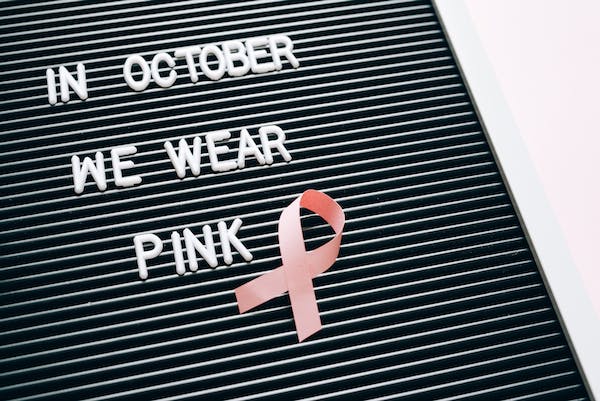
As pink-colored ribbons decorate the faces of stores and streets throughout October, a notion of knowledge and understanding follows along. October presents several celebrations and events, including fair openings and Halloween shenanigans, and the season of fall finally settles in. Above all else, the most important quality of October is Breast Cancer Awareness.
The beginning of Breast Cancer Awareness Month was in 1985 when the American Cancer Society’s pink ribbon became the symbol of breast cancer as the month’s holiday came into effect. Originally, the distribution of peach-colored ribbons from companies were what represented the holiday until the emergence of the pink-colored ribbons from Estée Lauder. Pink ribbons became more widespread as a token of breast cancer awareness.
Breast cancer affects around 1 in 8 women and 1 in 833 men worldwide. Knowing about chronic diseases detrimental to people’s lives is not only the purpose of Breast Cancer Awareness Month but also other programs and days preserved to highlight the importance of knowledgeability over caring about one’s health and the research being done to inform and contribute toward saving lives.
Spreading awareness about breast cancer, informing people about breast cancer’s effects, administering screenings when possible, and raising funds to support those diagnosed are what Breast Cancer Month is truly about. The ribbon only serves as a symbol of a much more active purpose, which includes meaningful events like Making the Strides and the More Than Pink Walk, where people go out and show support to the community.
At North Forsyth High, staff and students celebrate the month in their own way with Pink Out. Everyone shows up wearing pink to include their voice in support of the cause. To many people, breast cancer awareness is personal, North High’s school nurse, Kayla Lewis, stated, “I’ve had my grandmother have breast cancer, my mom has had thyroid cancer. So being aware in getting, you know, go[ing] in for your doctor’s appointments, go[ing] in for checkups, it’s very important. Just so that you know that you’re doing all the preventative stuff so that you can catch things early.”
North’s other school nurse, Samantha Tilley, adds, “The more we can share the knowledge, the more empowerment people have to take over their own health,” implicating how being knowledgeable can improve the overall health of society in general. Lewis concludes with the fact that healthcare is evolving with medication and research, therefore the availability of these resources should be better known to increase prevention.


